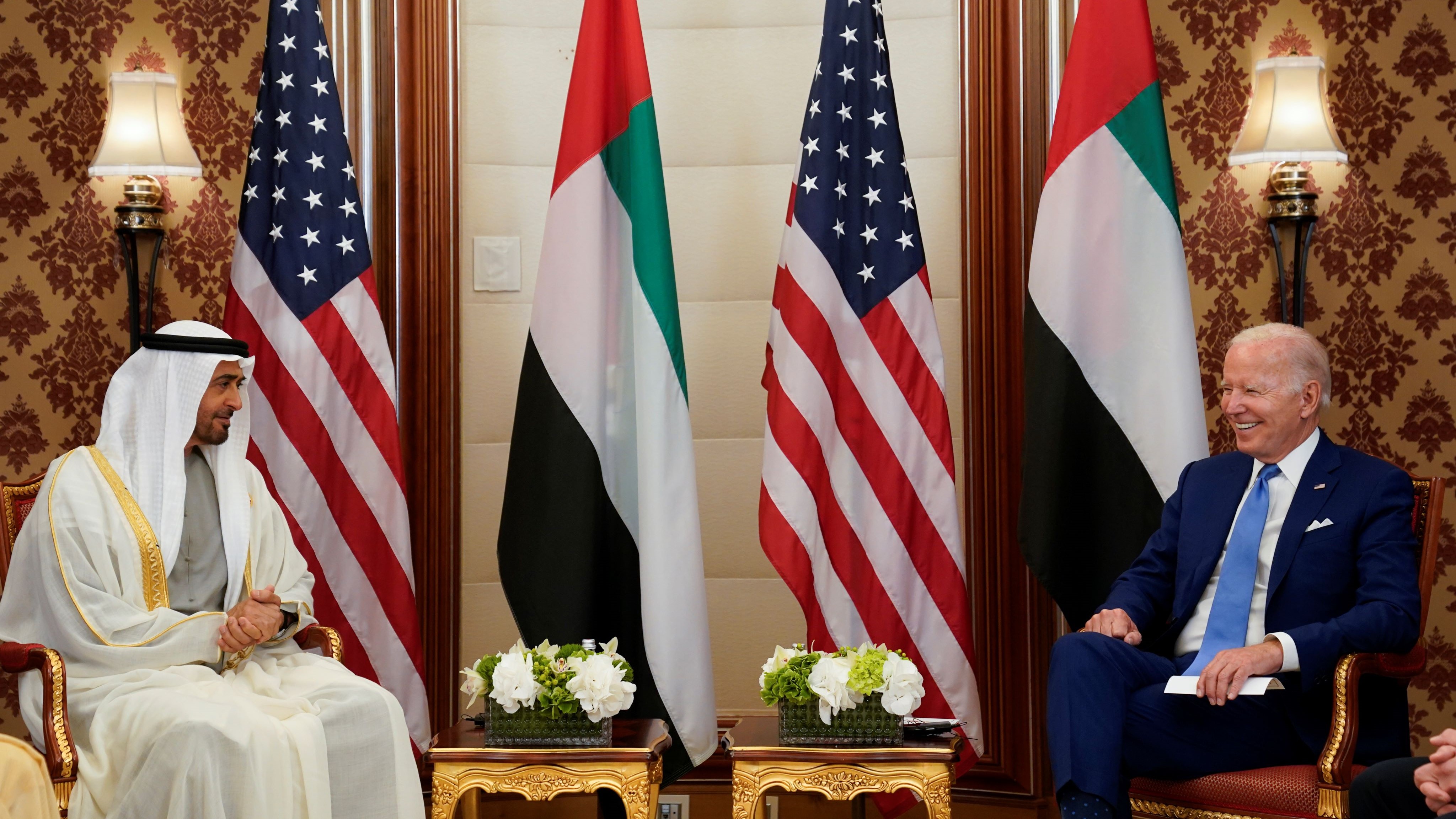Behind Closed Doors: Kushner's Advising On Trump's Middle East Plans

Table of Contents
The Genesis of the Kushner Middle East Plan
The creation of the Kushner Middle East Plan, often referred to as the "Deal of the Century," stemmed from President Trump's election in 2016 and a widespread dissatisfaction with the decades-long stagnation of the Israeli-Palestinian peace process. Previous attempts, often involving intricate negotiations and international involvement, had yielded minimal progress. Trump, promising a "different approach," tasked his son-in-law, Jared Kushner, with developing a new framework.
- Kushner's lack of prior experience: It's important to note that Kushner entered this role with limited experience in foreign policy or Middle Eastern affairs, a fact that drew considerable criticism from the outset. His relative inexperience was seen by many as a significant impediment to achieving lasting peace.
- Initial goals and objectives: The administration presented the plan as a comprehensive solution to the conflict, aiming to achieve a two-state solution while addressing key Israeli security concerns and Palestinian aspirations for statehood.
- Key individuals consulted (or not consulted): While the administration claimed to have consulted various stakeholders, the process was widely criticized for a perceived lack of meaningful engagement with the Palestinian Authority. This lack of Palestinian input became a major point of contention from the start. The plan was largely developed with significant input from Israeli officials, further fueling criticism.
Key Components of the "Deal of the Century"
The "Deal of the Century" proposed a complex set of arrangements, including territorial concessions, significant economic incentives, and enhanced security measures for Israel.
- Proposed map of the future Palestinian state: The plan envisioned a Palestinian state with limited territorial contiguity, significantly smaller than what had been previously proposed in other peace initiatives. This was a major point of contention with the Palestinians.
- Economic aspects: The plan included a massive investment package aimed at stimulating economic growth in the Palestinian territories. This aspect involved billions of dollars in investments from various sources, promising infrastructure development, job creation, and economic empowerment. However, many viewed this as an attempt to buy off Palestinian support rather than a genuine commitment to peace.
- Security guarantees for Israel: The plan proposed robust security arrangements for Israel, including demilitarization of the Palestinian state and long-term security cooperation. This was meant to address major Israeli security concerns, but it also raised concerns about Palestinian sovereignty and autonomy.
- Provisions for Jerusalem: The plan proposed that Jerusalem remain Israel’s undivided capital, a position strongly opposed by the Palestinians and much of the international community. This aspect, in particular, proved to be a major stumbling block, as the status of Jerusalem is a core issue in the conflict.
Reactions and Criticisms of the Kushner Plan
The Kushner plan was met with widespread criticism and rejection from various stakeholders.
- Palestinian Authority rejection: The Palestinian Authority immediately and vehemently rejected the plan, deeming it heavily biased in favor of Israel and failing to address their core concerns regarding statehood, sovereignty, and the status of Jerusalem. They viewed it as non-negotiable and ultimately refused to engage further.
- Reactions from Arab states and other regional actors: While some Arab states expressed cautious interest in certain aspects of the plan, the overall response from the Arab League and other regional actors was largely negative. Many criticized the plan for undermining the long-standing Arab Peace Initiative.
- International community's response and UN resolutions: The international community's response was mixed, with some countries expressing cautious optimism about certain elements, while others voiced strong criticism of the plan's imbalance and lack of Palestinian input. The UN Security Council failed to endorse the plan, reflecting the deep divisions within the international community.
- Criticisms regarding fairness and feasibility: The plan drew heavy criticism for its perceived unfairness, its lack of meaningful Palestinian involvement, and its overall infeasibility in achieving lasting peace. The lack of consideration for core Palestinian demands was a major point of criticism.
The Abraham Accords: A Partial Success?
A notable outcome, though arguably limited in its impact on the core Israeli-Palestinian conflict, was the Abraham Accords. These normalization agreements between Israel and several Arab states (including the UAE, Bahrain, Morocco, and Sudan) were facilitated, at least in part, by the broader Kushner initiative.
- Countries that signed: The Accords represent a significant diplomatic achievement in normalizing relations between Israel and these Arab nations, but they did little to advance the Palestinian cause.
- Key aspects of the agreements: The agreements involved establishing diplomatic relations, opening embassies, and enhancing economic cooperation, focusing on areas outside of the Israeli-Palestinian conflict.
- Long-term impact and limitations: The long-term impact and limitations of the Abraham Accords remain to be seen. While they have improved regional dynamics in certain aspects, they largely failed to address the central issues of the Israeli-Palestinian conflict.
Long-Term Impact and Legacy
The long-term consequences of Kushner's involvement and the "Deal of the Century" remain to be seen, but its influence on the Israeli-Palestinian conflict and the wider Middle East is undeniable.
- Continued stagnation in the peace process: The plan’s failure has largely contributed to the continued stagnation of the Israeli-Palestinian peace process, leaving the prospects for a two-state solution increasingly dim.
- Impact on regional stability and security: The plan's impact on regional stability and security is complex and multifaceted, with both positive and negative consequences. The Abraham Accords brought some normalization, but other aspects of the plan exacerbated tensions.
- Kushner's influence on subsequent US administrations: The approach and strategies employed by the Trump administration, particularly through Kushner’s involvement, have had a noticeable impact on subsequent US administrations’ policies towards the Middle East, particularly regarding the Israeli-Palestinian peace process.
Conclusion
Jared Kushner's role in shaping the Trump administration's Middle East policy, specifically through his ambitious "Kushner Middle East Plan," remains a significant and controversial chapter in the ongoing Israeli-Palestinian conflict. While the "Deal of the Century" ultimately failed to achieve its central aim of a lasting peace agreement, elements like the Abraham Accords offer a more nuanced perspective on its legacy. Understanding the intricacies of the "Kushner Middle East Plan" is crucial for comprehending the current state of affairs in the region and for future attempts to resolve the conflict. To delve deeper into this complex issue and gain a comprehensive understanding of the plan's successes, failures, and lasting impact, further research into related documents and analyses is highly recommended. Continue exploring the complexities of the Kushner Middle East Plan and its ramifications for the future of the Israeli-Palestinian conflict and broader regional stability.

Featured Posts
-
 Lily Collins And Charlie Mc Dowell A Look At Their Family Life With Daughter Tove
May 11, 2025
Lily Collins And Charlie Mc Dowell A Look At Their Family Life With Daughter Tove
May 11, 2025 -
 Choosing A College Town Why City Name In Michigan Should Be On Your List
May 11, 2025
Choosing A College Town Why City Name In Michigan Should Be On Your List
May 11, 2025 -
 Top College Towns In Michigan Why City Name Stands Out
May 11, 2025
Top College Towns In Michigan Why City Name Stands Out
May 11, 2025 -
 Magic Performance Leads Celtics To Division Title
May 11, 2025
Magic Performance Leads Celtics To Division Title
May 11, 2025 -
 Payton Pritchard Sixth Man Of The Year Contender A Deep Dive Into His Improved Performance
May 11, 2025
Payton Pritchard Sixth Man Of The Year Contender A Deep Dive Into His Improved Performance
May 11, 2025
